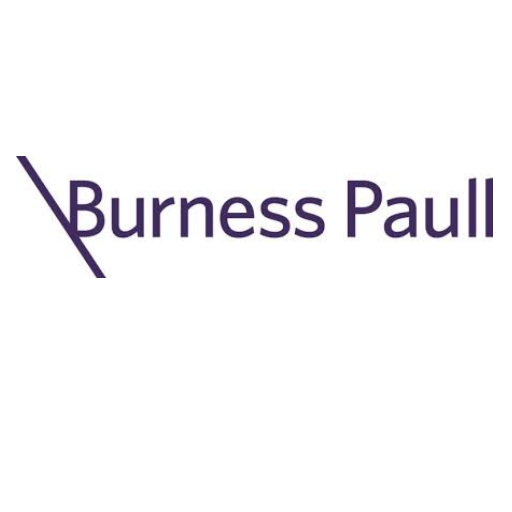BUNDLEDOCS COLLABORATED WITH LAW FIRM BURNESS PAULL TO HELP THEM COMPLY WITH STRINGENT NEW RULES FOR ASSEMBLING AND PRESENTING DOCUMENTS, AND SAVE SIGNIFICANT SUMS IN THE PROCESS, SAYS INNOVATION MANAGER OF BURNESS PAULL, SAM MOORE.
About Burness Paull
Burness Paull LLP is a leading Scottish commercial law firm of solicitors, with offices in Edinburgh, Glasgow, and Aberdeen. Burness Paull serves clients in Scotland and the UK and is notable for its strengths in corporate, property, and infrastructure, financial, and energy law. They are top ranked in both Legal 500 and Chambers.
As arduous lawyer admin tasks ripe for some efficiency improvements go, they don’t come much more so than collating hundreds of documents into project bibles for all parties at the close of a transaction, according to Sam Moore, the innovation manager at Scotland’s Burness Paull.
Moore became the first in the UK to secure accredited legal technologist status in late 2019. But as a busy construction lawyer back in 2016, he was very familiar with bible-building frustrations: “The training required on the pdf-editing platforms was pretty tricky, it was all taking a very long time, and you’re reliant on having every signed document back before you can even begin – there’s always one that hasn’t been returned.”
He was firmly in the market for a tool that could make lighter work of all this, and had come across Bundledocs at an industry conference the year before. The pair launched a pilot for the use case, and it didn’t take at all long for the value to become clear, he says.
Rewriting for the rules
At around the same time, however, even more ‘paperwork’ was causing headaches for Burness Paull’s lawyers and paralegals working on the largest commercial actions at Scotland’s Court of Session. “These call for a joint bundle – a consolidated collection of all documents and arguments from both sides – and new court rules demanded that it was all done electronically, with further restrictions around issues such as numbering, hyperlinking, and so on.” This was proving inefficient to handle internally, and in the largest and most complex cases the firm was increasingly leaning on an external document production specialist. It begged the obvious question, could Bundledocs take on this process transformation too?
Moore explains: “It could meet around half of the Court requirements straight out of the box, as there are some built-in functionalities for English courts – but Bundledocs then agreed to collaborate with us over three to four months to customise the software in such a way that we could be compliant for Scottish Courts as well.”
There were some 20 modifications, which underwent some beta testing and which are now there for all as features in the core product. These include formatting page numbers to appear in red in line with the Scottish Court requirements, and pinpoint hyperlinking from references, alongside a suite of annotating options, such as highlighting and redacting. The firm can also upload the content of folders straight into template Court bundles from their document management system with one click.
Moore continues: “I really think it shows that if firms make the effort to go back to developers with what they really need, they can often get everything they want from a solution – not just make do with ‘good enough’. I see tech vendors crying out for that sort of feedback, but too rarely getting it from lawyers.
“Now we use Bundledocs for both those use cases as standard, and we’ve had some really great feedback from clients, external counsel, and even other law firms about the consistency and simplicity of our Court bundles. As this is essentially an admin task, it’s in everyone’s interest that it happens as efficiently as possible.”
In one case, some 500 substantial documents were needed for a joint bundle, and the Court (plus external counsel) needed to be able to browse and search through them on tablet devices. Historically, Moore claims that would have cost the firm a significant sum to outsource to a document production specialist, the cost of which might not have been entirely recoverable. “Recovery of course requires that you win your case, and even if you do there are often limitations. The same goes for a settlement situation, a party very rarely recovers all of their Court costs. Now, if there’s any situation where a lot of documents need collating into an indexed bundle, this is how we do it.”
“We’ve had some really great feedback from clients, external counsel, and even other law firms. As this is essentially an admin task, it’s in everyone’s interest that it happens as efficiently as possible.””
Another example of where this can add value is in employment tribunals. Moore says: “You often need to sort thousands of emails into chronological order, including attachments, to help the Tribunal follow a chain of events. In the days of hard copies, you’d have printed them all out and physically sorted them. Even with electronic copies you’d still need to manually produce an index, and manually hyperlink each document.” So, certainly not desirable if working from a makeshift desk in the middle of a pandemic. However, being entirely cloud-based, Bundledocs is easily accessed by portal and connects with the firm’s document management system (also in the cloud), he says. Training on it takes no more than an hour to reach a good level of self-sufficiency.
He adds: “Bundledocs can automatically produce a single Pdf from the source MSG files, in date order, with an index. I see no reason we’d do this any other way in future.”
As process efficiency and productivity come under the microscope like never before, the message that sticks is that it’s worth taking time to consider whether you’d be best to communicate and collaborate before you innovate.
Ready to Get Started?
Get in touch to book a demo and start your Bundledocs journey today.


